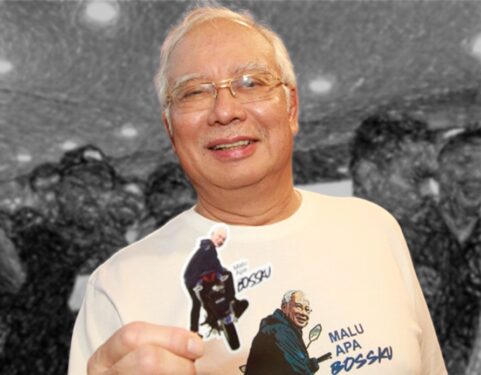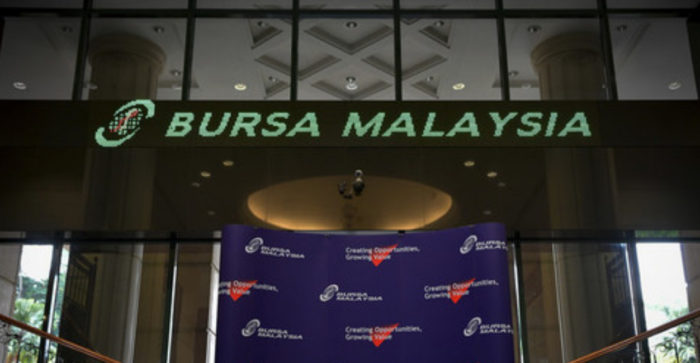IT IS likely that the fall of the Barisan Nasional (BN) coalition government after more than 60 years in power was the most disruptive political event for the Malays more than for any other race in the country.
When BN chairman and UMNO president Datuk Seri Najib Razak finally conceded defeat to the Pakatan Harapan (PH) coalition on May 10, 2018, the world’s media exploded – the New York Times with “What just happened in Malaysia?” and the BBC with “Malaysia election: What just happened?”
Amidst the shock and disbelief of Malaysians, the PH government took over with the swearing in of for the seventh PM (PM7) Tun Dr Mahathir Mohamad (Tun M) for the second time – he was PM4 from 1981 to 2003.
But that seems long ago now as the political disruptions snowballed into many more upheavals. Two more PMs – Tan Sri Muhyiddin Yassin as PM8 and Datuk Seri Ismail Sabri Yaacob as PM9 – replaced Tun M in 2020 following the infamous Sheraton Move.
The political disruptions for Malays would continue when the 15th general election (GE15) was called following COVID-19 recovery and the jailing of Najib who had become a popular people’s hero with the moniker Bossku.

It seemed that without Najib and due to the endless internal turmoil within UMNO helmed by Datuk Seri Ahmad Zahid Hamidi, the Malay-based party lost heavily in GE15 by winning only 30 seats.
Thus, despite UMNO’s adamant declaration of “No, Anwar! No, DAP!” before GE15, the Malays faced added insult to injury with UMNO having to join with DAP and PH to form the unity government with Datuk Seri Anwar Ibrahim as PMX.
In the same boat
These events bring back memories of when I was exposed to disruptive politics at a young age. I remember my father, a civil servant, bringing home the Parti Perikatan/Alliance Party campaign flag.
He showed me the small royal blue flag printed with the white logo of a sailboat that symbolised the unification of Malays, Chinese and Indians sailing through the choppy political waters in the struggle for independence.
He didn’t explain much as I was too young but told that the flag was handed to him outside the office. If I’m not mistaken, it was during the campaign for the May 10, 1969 general election and that he wasn’t going to display it.
But that was the year that violent riots broke out following the election results. No matter which version of events you prefer, it was a scary time to an impressionable child. When school re-opened, the phase of national re-conciliation had begun.
Perhaps that is why my generation believed that BN – the coalition that replaced the Alliance Party on June 1, 1974 – was the peacemaker who moderated with UMNO as the gatekeepers to nation building.

We were all in the same boat, weren’t we? But the sailboat symbol of Alliance would later be replaced by the scales of justice symbol of BN that would be reflected in the New Economic Policy and the Rukun Negara (National Principles).
It all seemed so sensible that a succession of BN leaders would work together to strengthen and stabilise the nation’s politics while promoting racial integration. But everything changed in 1998 with the sacking of Anwar, the then deputy PM.
This would trigger a sequence of events – with continued political disruptions and upheavals that would throw Malays into disarray – and the formation of a new coalition named Perikatan Nasional (PN).
Political fatigue
But it would be the internet that would fuel the political disruption with widespread information (and disinformation) dissemination using mainstream media, alternative news channels and now social media.
With better education and the accessibility provided by the internet, it will become more difficult to persuade people in the rural hinterland as to which party they should vote for.
The victorious Pakatan Harapan (PH) that toppled BN in 2018 was a disruption that shocked many. It was unthinkable but was this inevitable after more than 60 years BN had been in power? Was it time for change?
Compared to the public exuberance that cheered the fall of BN and the dawn of a “New Malaysia” in 2018, the Malaysian appetite for political shenanigans has dulled and fatigue has set in.

When once the catchphrase “Rindu zaman Tun (M)!” (Missing the era of Tun M) was popular, have you heard the new one, “Rindu zaman Najib!” (Missing the era of Najib)? Could it be that Bossku holds the key to Malay unity?
Younger voices
According to a 2022 survey by the International Republican Institute (IRI), “Malaysians are also becoming more pessimistic about their country’s political leaders. Some 50% of Malaysians would now like to see new political parties in future elections.”
Naturally, the young thrive on change but there are lessons to learn from the experience of Thailand’s Pita Limjaroenrat (aged 43 years) and the socialist left-wing progressive Move Forward Party founded in 2014.
Despite having won the election with the majority of seats, Pita failed to be sworn in as PM due to objections from Parliament.
In a Thai PBS World article, an analyst opined that the Move Forward Party faced three major challenges – problems with communication, unity and managing its supporters.
The analyst pointed out that Thailand’s young politicians and supporters seem to have low tolerance for views that differ from their own with newbies more focused on creating viral social media posts and making headlines.

There are stark similarities to the problems faced by this “never been tried before” unity government in Malaysia that is headed by PMX.
When the older Malays thought that UMNO and BN championed their interests, it is now seen as a toothless tiger with leaders unable to fill the vacuum left by Najib.
Is Malaysia really becoming more polarised along race and religious lines or is it inevitable that future generations are trying to find their way amidst the political disruption? Has the BN ship finally sailed for young Malays?
Like it or not, the older generation will fade away. What political legacy have they left behind? – Oct 9, 2023
Niza Shimi was a former journo with a leading mainstream English media.
The views expressed are solely of the author and do not necessarily reflect those of Focus Malaysia.










